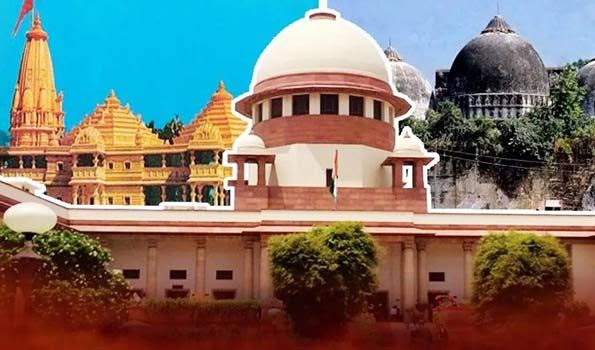


The 22nd Law Commission chaired by former Karnataka High Court Chief Justice Ritu Raj Awasthi has submitted a report to the Union Ministry of Law and Justice on the law on the offence of criminal defamation.The Commission has taken the view that the offence should be retained within the scheme of criminal laws in the country."In this regard, it is important to keep in mind that right to reputation flows from Article 21 of the Constitution of India, and being a facet of right to life and personal liberty, needs to be adequately protected against defamatory speech and imputations," the report states.The Supreme Court in Subramanian Swamy v Union of India had dismissed the challenge to Section 499 of the Indian Penal Code (IPC) which penalises defamation.The apex court had held the provision to be constitutionally valid on account of it being a reasonable restriction under Article 19(2) to the freedom of speech and expression enshrined in Article 19(1)(a).Thereafter, on August 4, 2017, the 21st Law Commission received a reference from the Law Ministry to examine the subject of defamation laws and the issues incidental to it. The reference arose from a letter dated September 1, 2016 by a then Member of Parliament.The reference suggested a need to reform the law on defamation, stating that existing laws neither serve the interests of the aggrieved person nor the principle of free speech.It was stated in the reference that criminal defamation traces its origin from the colonial era and is in conflict with the democratic values and free speech as enshrined under Article 19(1)(a) of the Constitution of India.Accordingly, the 22nd Law Commission undertook a study to analyse the history of the law of defamation, its relationship with the right to freedom of speech and expression, and the various judgments rendered by courts across the country.The Commission also studied the relationship between right to reputation and the right to freedom of speech and expression, and how the two need to be balanced. Further, the Commission looked into the treatment of criminal defamation across various jurisdictions.On the constitutionality of the offence of criminal defamation, the Law Commission has concluded that not all speech is worthy of protection, and that this is especially true for defamatory speech, which has a potential to do great harm."Under Article 19(2) of the Constitution of India, reasonable restrictions can be imposed in relation to defamation for safeguarding the reputation of individuals. Criminal defamation acts as a deterrent against false and malicious statements, preventing damage to one's reputation that civil remedies might not adequately address. Moreover, the law ensures a balance between freedom of expression and right to reputation, essential to maintain social harmony and protecting individuals from unwarranted harm caused by defamatory statements," the report adds.On the potential misuse of criminal defamation laws and demands for legal reforms balancing the protection of individual reputations with upholding the right to freedom of speech and expression, the Commission has suggested that such reforms should discourage frivolous or malicious complaints, provide safeguards against misuse, and encourage a more robust public discourse without the fear of legal reprisal.On the necessity of the law, the Commission has concluded that the conduct criminalized by the defamation law safeguards a crucial personality interest - that of reputation."The ability to express oneself freely, especially politically, is essential for achieving dignity in areas like self-actualization, self-governance, and the recognition of human value. Also, whereas the right to political expression is central to the concept of freedom of expression, the right to reputation is closer to the periphery," it has stated.The Commission has argued that retention of the law will have a stronger deterrent effect as compared to possible monetary damages in civil lawsuits and that there is public interest in protecting reputation.On the inadequacy of civil defamation, the report states that not only does the crime of defamation serve a legitimate and important goal of the criminal law by protecting a person's reputation from the intentional publication of a lie, but it provides protection in cases where the civil remedy would be deficient.
"Thus, the civil remedy does not provide a practical alternative where the victim does not have the financial means to pursue it, or where the offending party does not have the means to satisfy an order of payment of monetary damages to the victim," it adds.The report also acknowledges that the Bharatiya Nyaya Sanhita, 2023 has added community service as a punishment. This law, as per the Commission, gives a balancing approach by safeguarding the interest of the victim and also neutralizing the scope of misuse by giving an alternate punishment.Accordingly, the Commission has recommended that the offence of criminal defamation be retained in the scheme of criminal laws in the country.
TAGS: Law Commission criminal defamation constitutionality freedom of speech right to reputation Article